Susan Kaiser Greenland – Advanced Activity-Based Mindfulness for Kids
$199.00 Original price was: $199.00.$59.00Current price is: $59.00.
Digital Download: You will receive a download link via your order email
Should you have any questions, please contact us: [email protected]
 Susan Kaiser Greenland – Advanced Activity-Based Mindfulness for Kids
Susan Kaiser Greenland – Advanced Activity-Based Mindfulness for Kids
Kids don’t have an on/off switch…
When kids need to calm down, focus and be still, many struggle to modulate their attention, emotions, and behaviors, which can be overwhelming and exhausting in school, at home and in your sessions.
Over time, this trend wears down teachers, parents and clinicians while fueling stress, frustration, conflict and disappointment for children and caregivers alike.
Break the vicious cycle with activity-based mindfulness! Join internationally known mindfulness expert and author, Susan Kaiser Greenland, for this intensive online course on mindfulness practices for kids. You’ll gain step-by-step implementation instructions for dozens of customizable mindfulness games and activities to help the children you work with increase focus, enhance self-regulation and strengthen compassion.
Through brief yet effective mindfulness activities, you will be able to foster six essential life skills for your young clients or students — Quieting, Focusing, Seeing, Reframing, Caring, and Connecting. Plus, you’ll also gain tips and techniques to develop your own activities, and strategies to help when a child refuses to participate or becomes disruptive during activities!
Don’t wait to get started implementing these transformative mindfulness activities to help kids and caregivers develop mind-body awareness, compassionate life skills, and stress management.
Here’s what you’ll learn in this online training…

Most people are drawn to mindfulness because they want to fix something (whether it be with themselves or someone else, like parents with their children). In this module, you’ll gain essential foundational insight about mindfulness. You will learn the five methods of mindfulness practice, and a formula for mindfulness success — play, practice, share and apply.
Key topics covered in this module include:
- Mindfulness defined
- How to use “anchors” in mindfulness
- Exploration of the Inner Kids Model
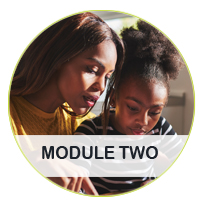
In module two, you’ll learn games that can help your young clients improve their focus, and strengthen their ability to quiet themselves, through various methods and themes.
Susan provides essential insight into:
- Mindfulness category 1 of 3: attention
- Developing restraint and releasing nervous energy
- The window of tolerance for nervous system stimulation
- Techniques for when a child is disruptive during a mindfulness game
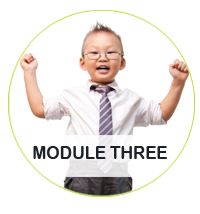
Module three brings light to the second category of mindfulness — balance. Through balance, kids can become more aware of what they are feeling and be okay with these feelings rather than trying to change or judge them. Building off balance, you will master games that can attune your client’s ability to focus.
You’ll learn:
- The spotlight of the attention approach to mindfulness
- How to start a therapy session with concentration
- Strategies to help kids ignore distractions
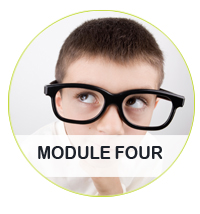
Broaden a child’s view of others to help them accept actions or traits they may not initially like with the training in module four.
Key topics covered in this module include:
- Techniques to help your clients connect with their peers
- Becoming more open-minded to be more compassionate
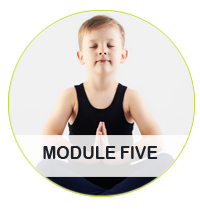
Help children and adolescents recognize what is happening in their mind and body with the techniques in module five.
Key topics covered in this module include:
- How to change your relationship with negative thoughts
- Building awareness of what’s happening in the present moment
- A roadmap for speaking and acting in a way that’s helpful to self and others
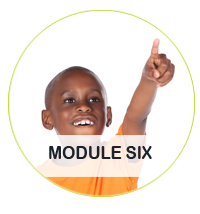
In module five, you’ll learn effective strategies to help children think of situations in a new light.
Key areas of focus in this module include:
- Engaging in analytical thinking
- Techniques using appreciation as a focus
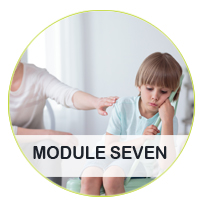
The third and final category in mindfulness is compassion, and module six focuses on the foundation and tools to effectively grow abilities for attuning, caring and connecting with the self and others.
After introducing compassion you’ll expand to cover:
- Strategies to focus on the present moment
- Tips and tools for kids that are bullied
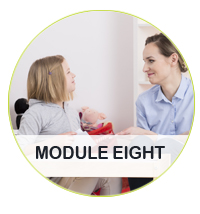
Mindfulness activities work best when children are open to participating, this module will give you effective strategies to help kids become more open-minded and willing to partake in activities.
You’ll learn to:
- Handle resistance from children with any of these games
- Enhance ability to visualize using mindfulness
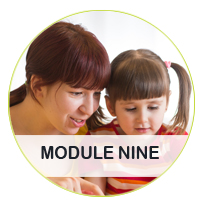
In this final module, you’ll tie everything covered in the previous modules together, with a key focus on logistics and individualizing the tools, techniques games for your environment.
Specific areas of focus include:
- Items to keep in mind when bringing games into your mindfulness practice
- Using mindfulness with young athletes
- Inclusion and diversity beyond usual measurements
- The establishment clause and what it means for mindfulness in school
Get to know Susan Kaiser Greenland, JD

Susan Kaiser Greenland is an internationally recognized leader in teaching mindfulness and meditation to children, teens, and families. She played a foundational role in making mindfulness practices developmentally appropriate for young people and helped to pioneer activity-based mindfulness with her first book The Mindful Child. Her second book Mindful Games, offers simple explanations of complex concepts, methods, and themes while expanding upon her work developing activity-based mindfulness games.
Susan worked as a corporate lawyer from 1988 to 2005. During that time, she developed the Inner Kids model while volunteering in public schools teaching secular mindfulness. Inner Kids is a hybrid of classical mindfulness and meditation practices that have been adapted for children, and one of the first mindfulness programs in education.
Susan and her husband, the author Seth Greenland, founded The Inner Kids Foundation, a not-for-profit organization that taught secular mindfulness in schools and community-based programs in the greater Los Angeles area from 2001 through 2009. She eventually left her law practice to work with children, teachers, and parents full-time.
Susan was on the clinical team of the Pediatric Pain Clinic at UCLA Mattel Children’s Hospital, co-investigator on several UCLA research studies on the impact of mindfulness in education, and a collaborator on an investigation of mindful eating for children and caregivers. Research on the Inner Kids elementary school program has been published in the Journal of Applied School Psychology. In 2006, Susan was recognized as a “Champion for our Children” by First 5 LA, the largest and most influential children’s advocacy group in Los Angeles.
Financial: Susan Kaiser Greenland is an author and receives royalties. She receives a speaking honorarium from PESI, Inc.
Non-financial: Susan Kaiser Greenland is a board member of the Fdn for a Mindful Society.
Sale Page: https://catalog.pesi.com/sales/bh_c_001256_activity_mindfulness_032019_organic-85800
Archive: https://archive.fo/wip/xhnNG
Delivery Method
Be the first to review “Susan Kaiser Greenland – Advanced Activity-Based Mindfulness for Kids” Cancel reply
Related Products
Medical & Health
Medical & Health
Susan Kaiser Greenland – 2-Day Experiential Workshop: Activity-Based Mindfulness for Kids


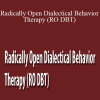

![[Download Now] 2-Day Experiential Workshop: Activity-Based Mindfulness for Kids - Susan Kaiser Greenland](https://imcourse.biz/wp-content/uploads/2022/02/Intell-v2-362.jpg)

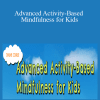
Reviews
There are no reviews yet.